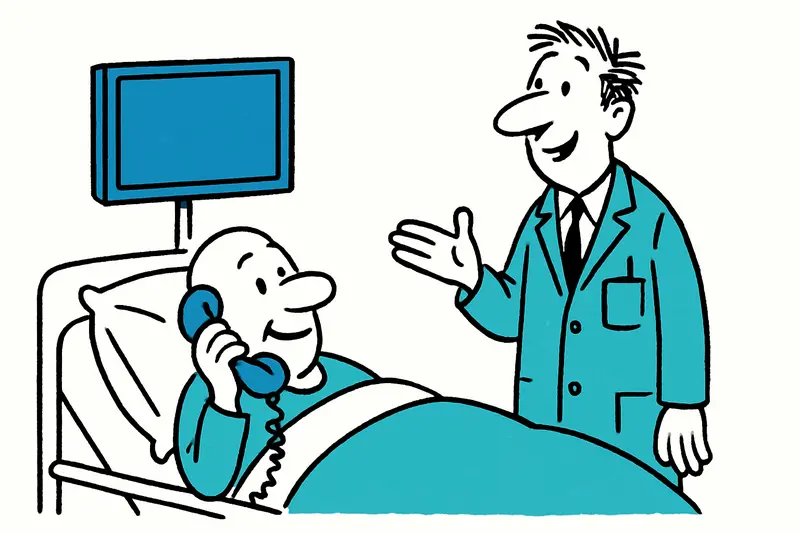The Comarcal de Inca now has phones and smart TVs in the rooms. The hospital administration calls it a measure to increase wellbeing; some staff remain skeptical.
More comfort on the ward: Flat-screen and telephone at the bed
Last week the corridors of Hospital Comarcal de Inca smelled a bit of freshly painted walls and coffee from the cafeteria — and of a new project: all patient rooms were equipped with flat-screen TVs and telephone connections. Anyone who yesterday relied on the communal TV in the lounge now lies in bed with their own device.
What exactly is new?
According to the hospital administration, additional communication options have now been installed in the four wards as well as in the dialysis unit: around two phones per room, smart TVs in the regular rooms, in the single rooms, in the dialysis unit, and in some common areas. In the coming weeks access to streaming services will also be activated, so that patients can log in with their own accounts.
The idea behind it: More privacy, less boredom, a slice of everyday life in the hospital. Health Minister Manuela García and hospital director Xisco Ferrer presented the project on site and stressed that it is about a 'more humane care' — not just about medicine, but also about well-being during the stay.
What do the people on site say?
A ward nurse who preferred to remain anonymous said in the corridor that a bed-side phone is practical for family conversations. An older man on Ward 2 complained yesterday, half joking: Finally I can watch my messages again, without anyone changing the channel for me.
At the same time there are questions: Will devices and access be adequately cared for? Who is liable for damages? The hospital notes that the procurement and a four-year maintenance are included in the service package — an amount that, according to the administration, is in the low six-figure range.
More humanity or just a pretty extra?
For some, the new offering is a small improvement in the daily hospital routine. For others the central question remains whether technology can replace the time and closeness of caregivers. Nursing staff emphasize: Personal care cannot be compensated for with additional screens. But: if television helps bridge waiting times or involve relatives better, it makes sense.
In the end, it will become clear whether the so-called 'hotel mode' truly leads to less stress for patients — or whether it mainly serves as a modern showcase for investments. A preliminary conclusion from Inca: Small things can make a big difference as long as humanity remains the top priority.
Similar News

Balearic Islands Expand Psychological Care in Health Centers
From mid-October, direct psychological help will be available in many Balearic health centers for the first time. Ten st...

Hair Matter: Why Many Choose Turkey for a Hair Transplant
More and more people are booking clinic packages in Istanbul: modern planning, fairer prices and often extensive service...

Flu vaccination campaign for preschoolers on the Balearic Islands begins
From today, around 28,000 preschoolers at more than 350 schools on the Balearic Islands can be vaccinated against flu. M...

Mallorca Flu Vaccination Campaign 2025/26: Schools First, Then Risk Groups
Starting October 6, vaccinations for preschool children at schools will begin. Starting October 13, all at-risk groups w...

Virtual Reality Glasses to Ease Chemotherapy for Cancer Patients in Inca
In the hospital in Inca, doctors and nurses are testing VR glasses that show short relaxation videos. Early users report...
